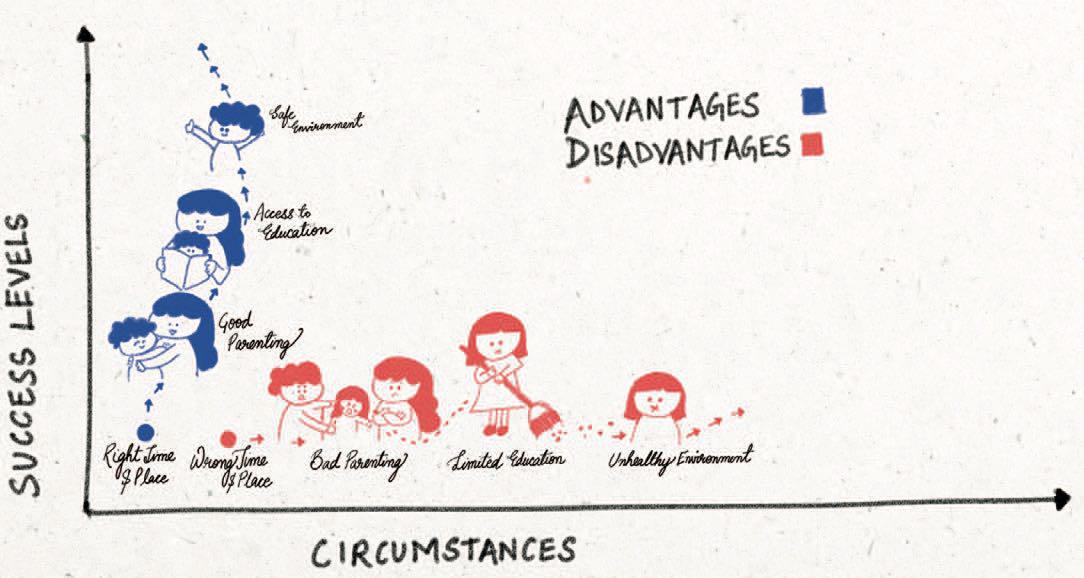
In thinking about slightly redistributive economic policies, it is essential to address a belief many people hold deeply. This is the belief that honest, hard-working people always deserve most or all that they earn. This belief is bound up with notions of fairness, of self-ownership, and with ideas of the very essence of what a person is. Unfortunately these are also the very notions that undermine the belief in absolute deserving, once examined.
Let's start with the part that's hard to dispute. Those who end up toiling hard in low paid physical or mental labor deserve their pay, and much more. At the opposite end are those who end up fabulously wealthy who have often been targeted as undeserving of their sheer amounts of money. A case in their defense could be made if their success was attained fairly and was a necessary by-product of the best possible market system meaning the one that benefits people more than any of the alternatives. But neither of these conditions are empirically true.
First, most current market systems do not benefit all people, or even a greater percentage of people, more than all alternative systems. Scandinavian countries often do best on overall happiness, and they operate extensive welfare systems. Second, the neo-liberal free market system is not like Monopoly, where chance and skill combine to produce winners fairly because all the players start out with equal resources. Rather, the starting points are always deeply unequal. Not surprisingly, most children of upper class families remain in the upper classes as adults, and most children of lower class families remain in the lower classes. This is so even if there is no formal cheating by the upper class parents and children. The sociological data supporting this seems incontrovertible.
Esta historia es de la edición February/March 2024 de Philosophy Now.
Comience su prueba gratuita de Magzter GOLD de 7 días para acceder a miles de historias premium seleccionadas y a más de 9,000 revistas y periódicos.
Ya eres suscriptor ? Conectar
Esta historia es de la edición February/March 2024 de Philosophy Now.
Comience su prueba gratuita de Magzter GOLD de 7 días para acceder a miles de historias premium seleccionadas y a más de 9,000 revistas y periódicos.
Ya eres suscriptor? Conectar

FALLING DOWN
Thomas R. Morgan considers how personal identity is maintained, and how it is lost.

Pythagoras (570-495 BCE)
Daniel Toré looks beyond the mathematician to the philosopher.

Wordsworth & Darwin
Christine Avery wonders whether poetry can help us to deal with science.

Plants & Philosophy
Caroline Deforche sees similarities between gardening and philosophising.

Dr.Gindi sculptor, has a philosophical conversation with Richard Baron about sensation, life, infinity and, you guessed it, sculpture.
Dr. Gindi is one of Switzerland's foremost sculptors, whose work has been exhibited in many countries.

Thomas Aquinas on Extraterrestrial Life
Babatunde Onabajo tells us why Aquinas did not believe in aliens.

The Fire This Time
Tim Madigan on Ray Bradbury, Bertrand Russell and Fahrenheit 451.

Trust, Truth & Political Conversations
Adrian Brockless wants a recognition of human value in political debate.

Philosophy & The Crown
Vincent Di Norcia on monarchy and stability.

Technologists & Ethicists
Stephen L. Anderson laments inadequate moral insight among tech leaders.